Text
May/June/July/August 2018: It’s the World Cup. Ain’t Nobody Reading
Books Bought
None
Books Borrowed
None
Books Read
None
2 notes
·
View notes
Photo

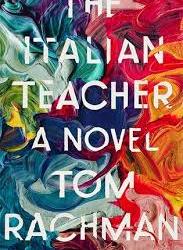

March/April 2018: I Must Be Doing Something Wrong: Failing To Find The Right Book
Books Bought
None
Books Borrowed (all @ Multnomah Public Library)
Fates and Furies by Lauren Groff (audiobook and hardcopy)
The Italian Teacher by Tom Rachman
Sweetbitter by Stephanie Danler
Books Read
Fates and Furies by Lauren Groff
The Italian Teacher by Tom Rachman
Sweetbitter by Stephanie Danler
I listened to the first half of Lauren Groff’s celebrated Fates and Furies while speeding across I-94 in eastern Montana, a flat, still-grey landscape with nothing more than scrub grass and lonely ponderosa pines stretched out beneath the wide gape of sky. The tall tale of failed-actor turned successful playwright Lancelot “Lotto” Satterwhite has an irresistible romanticism, like a nice meal on an overnight train. The scene where Lotto meets his mate Mathilde is perfectly dreamy.
Lotto swam up out of the crowd and crossed the floor to Mathilde. She was six feet tall in bobby socks. In heels, her eyes were at his lip line. She looked up at him coolly. Already he loved the laugh she held in her, which nobody else would see. He felt the drama of the scene. Also, how many people were watching them, how beautiful he and Mathilde looked together. In a moment, he’d been made new. His past was gone. He fell to his knees and took Mathilde’s hands to press them on his heart. He shouted up at her, “Marry me!” (pg. 38)
Yet the second half of the book (read in hardcopy, certainly a downgrade from the road trip audiobook), recounting Mathilde’s side of the story, squanders every opportunity to turn her into a compelling character. The fear for her and the reader is that she won’t emerge from her husband’s shadow, and Groff is guilty for allowing that to happen. Perhaps the most interesting thing about the book is former President Obama’s pick of it as his favorite of the year. What gives Barry?
And my reading continued downward as, Tom Rachman’s The Italian Teacher is bewilderingly terrible, especially considering how great-and-good his first two books were. This dud is centered around painter Bear Bavinsky, a complete asshole who is preposterously lionized by the protagonist, his son Pinch. The veneration is emotionally unbelievable and narratively unproductive. Take this example, where Pinch describes Bear’s funeral where the extended family is meeting for the first time ever.
“In total, Dad fathered seventeen children…More uncomfortable facts emerge too. Several of Bear’s families overlapped, including a few wives.” (pg 250)
I’d strongly argue that finding out for the first time that your father had multiple overlapping families before abandoning each and every one of them is more than uncomfortable, and would allow for one (or more) of those children to sound off on their dead-beat dad. But the set-up is badly bungled into nothing more than a brief, boring, and half-hearted grieving session. It’s also heartbreaking to see a writer of Rachman’s talent given no editorial support whatsoever, leading to indecipherable passages (an action scene on pg. 247 has a character simultaneously going up and down a hillside) and other simple first-draft errors (lifting a bookcase for a few seconds does not lead to a “sweat-soaked” shirt (pg. 260) that no one cared to correct. Rather than elevating his status among contemporary writers, this third book is a grave warning about the perils of literary success, and the specific danger of having no one around to tell you when you’re very, very wrong with the direction of your writing.
After going 0-2 I opted for what I thought would be candy and Sweetbitter, a New York City restaurant story, starts off promisingly:
“I don’t know what it is exactly, being a server. It’s a job certainly, but not exclusively. There’s a transparency to it, an occupation stripped of the usual ambitions. One doesn’t move up or down. One waits. You are a waiter... Some of it was a draw: the money, the sense of safety that came from having a place to wait. What I didn’t see was that the time had severe brackets around it. Within those brackets nothing else existed. Outside of them, all you could remember was the blur of momentary madness. Ninety percent of us wouldn’t even put it on a resume. We might mention it as a tossed-off reference to our moral rigor, a badge of a certain kind of misery, like enduring earthquakes, or spending time in the army. It was so finite.” (pg. 3-4)
Unfortunately Danler then proceeds to tell a story that has no relation to the preceding passage and instead opts for a insipid story of a vacuous girl who seems embarrassingly immature in everything she does. The romantic heart of the book is not convincing, and the heavy focus on white characters in what is one of the country’s most diverse industries rings false. The fact that the STARZ network turned this into a failing TV show is all your need to know about the level of sophistication you can expect from the source material.
I’ve had a good run finding the right book at the right time. Here’s to the hope that I can get back on track pronto...
#lauren groff#fates and furies#the italian teacher#tom rachman#sweetbitter#stephanie danler#booklr#books read#book review
0 notes
Photo

January/February 2018: “The Path to Success is to Take Massive, Determined Action.” - Tony Robbins
Books Bought
None
Books Borrowed (all @ Multnomah Public Library)
Fates and Furies by Lauren Groff (audiobook)
Living Forward: A Proven Plan to Stop Drifting and Get the Life You Want by Michael Hyatt and Daniel Harkavey
Awaken the Giant Within by Tony Robbins (audiobook)
Outline by Rachel Cusk
M Train by Patti Smith
Principles by Ray Dalio
Sweetbitter by Stephanie Danler
Light and Healthy 2011 by America’s Test Kitchen
Blackout: Remembering the Things I Drank to Forget by Sarah Hepola
The Subtle Art of Not Giving a Fuck by Mark Manson
Unlimited Power by Tony Robbins (audiobook)
The Blood Sugar Solution 10-Day Detox Diet by Mark Hyman
The 30-Day Ketogenic Cleanse by Maria Emmerich
Books Read
Living Forward: A Proven Plan to Stop Drifting and Get the Life You Want by Michael Hyatt and Daniel Harkavey
listened to abridged version of Awaken the Giant Within by Tony Robbins
listened to abridged version of Unlimited Power by Tony Robbins
listened to half of Fates and Furies by Lauren Groff
skimmed a bit of The Blood Sugar Solution 10-Day Detox Diet by Mark Hyman
thumbed through Principles by Ray Dalio
flipped through a few pages of The Subtle Art of Not Giving a Fuck by Mark Manson
There’s nothing like a second baby on the heels of a new year to inspire a truly destabilizing self-improvement panic. While resolution-inspired-reading usually entails lightly perusing a hip new cookbook (”I really should cook artichokes more”) or flipping through a trendy new fitness book (”I really should try interval training”), the self-doubt of 2018 probed more deeply, pressed more insistently. But like a biography of George Washington, I never thought I’d read Tony Robbins and his ilk, despite knowing there was clearly some value in it. Self-help, particularly by the likes of white men who write because of or about their own material success, seems icky. (1) Self-help all too often is a stand in for motivational cliches so you can get your finances in order. And yet, here I am, hoping these quacks can guide me toward a more manageable daily experience.
And like most everything if you give it a chance, there was much here to be appreciated. While Unlimited Power and Awaken the Giant Within help inspire, Living Forward was the most practical and helpful, advocating simply for writing out your priorities in the form of a life plan.
A Life Plan is a short written document, usually eight to fifteen pages long. It is created by you, for you. It describes how you want to be remembered. It articulates your personal priorities. It provides the specific actions necessary to take you from where you are to where you want to be in every major area in your life. It is most of all a living document that you will tweak and adjust as necessary for the rest of your life. (pg. 36)
Despite the Christianity unnecessarily lurking at the corners, I spent 8 hours doing what they asked, and now have my own life plan. The process, including the task to write out what you want your friends, family, and colleagues to say at your funeral, was illuminating, and reading the document each morning has helped quell the panic significantly.
While the results have been encouraging, my deep dive into self-help is perhaps most unsettling as it appears alongside a fundamental disinterest in fiction. Fates and Furies is clearly excellent, and I can’t find the drive to pick it up again. If self-help is a long look inward and fiction is a steady gaze out, is there a place for them to meet in the middle?
(1) Or to put another way, where is the self-help book by a fireman about how to understand one’s life, or the book by a teacher about how to organize one’s priorities?
#living forward#michael hyatt#daniel harkavy#tony robbins#awaken the giant within#unlimited power#life plan
0 notes
Photo
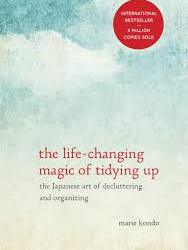


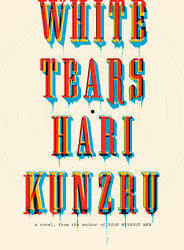
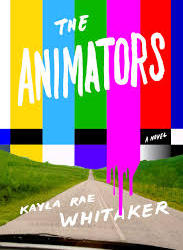
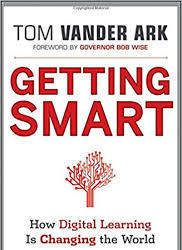
November/December 2017: The Radical Nature of Sincerity
Books Bought
None
Books Borrowed (all @ Multnomah Public Library)
Most Likely to Succeed by Tony Wagner & Ted Dintersmith
White Tears by Hari Kunzru
The Animators by Kayla Rae Whitaker
Getting Smart by Tom Vander Ark
A Natural by Ross Raisin
The Life Changing Magic of Tidying Up by Marie Kondo
Books Read
Most Likely to Succeed by Tony Wagner & Ted Dintersmith
The Life Changing Magic of Tidying Up by Marie Kondo
A Natural by Ross Raisin
White Tears by Hari Kunzru
The Animators by Kayla Rae Whitaker
(half of ) Getting Smart by Tom Vander Ark
Most Likely to Succeed is the educational book every American should read to better understand why teaching and learning is so (generally) awful in the United States. Despite the wrong framing of the solution around education that supports entrepreneurialism, the authors skillfully lay out the problem and show how the historical legacy of educational standardization has wrought a system of testing that measures things that don’t really matter. And despite the scope of the problem, I found it profoundly inspiring, sparking a moonshot educational idea of my own that I hope could change what happens in classrooms across the world.
Given that level of personal impact, and even considering the merits of the beautiful and heartbreaking soccer (sorry football) story A Natural and the eerie parable of racial retribution in White Tears, it’s disorienting to admit that The Life Changing Magic of Tidying Up was the most meaningful book I read as 2017 came to a close. It’s not the writing or the simple but intriguing method it advocates, but rather it was the earnestness of the author.
David Foster Wallace talked a lot about sincerity, and to paraphase a quote I remember (but can’t find again), he said something along the lines of “the most radical thing you can do at the end of the twentieth century is to be sincere.” And so when Kondo write home tidying tips like this it’s easy to make fun of her:
“The first thing I do when I visit a client’s home is to greet their house. I kneel formally on the floor in the center of the house and address the house in my mind. After giving a brief self-introduction, including my name, address, and occupation, I ask for help in creating a space where the family can enjoy a happier life. Then I bow.” (pg 188)
But rather than tease her (our default 21st century response to all of life’s problems) perhaps we can learn something from this level of sincerity and ceremony. After a year of bad-news-exhaustion when resistance felt both essential and impossible, it was inspiring to think that getting rid of some of my books that I hadn't cracked in 22 years could actually do something profound. So thank you Marie Kondo for helping me remember why I read books: to revel in the profundity in the mundane.
#most likely to succeed#the life changing magic of tidying up#marie kondo#tony wagner#ted dintersmith
2 notes
·
View notes
Photo

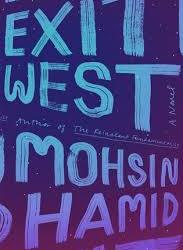




September/October 2017: Go Read Between the World and Me Right Now!
Books Bought
None
Books Borrowed (all @ Multnomah Public Library)
Peace by Richard Bausch
Swing Time by Zadie Smith (with photo)
The Tsar of Love and Techno by Anthony Marra
When Breath Becomes Air by Paul Kalanithi
Exit West by Mohson Hamid
Celine by Peter Heller
The Rise and Fall of the Dodo by Neal Stevenson and Nicole Galland
All Joy and No Fun: The Paradox of Modern Parenthood by Jennifer Senior
Sourdough by Robin Sloan
Missing Out: In Praise of the Unlived Life by Adam Phillips
Between the World and Me by Ta-Nehisi Coates
Books Read
Between the World and Me by Ta-Nehisi Coates
Exit West by Mohson Hamid
All Joy and No Fun by Jennifer Senior
Sourdough by Robin Sloan
When Breath Becomes Air by Paul Kalanithi
Peace by Richard Bausch
Ta-Nehisi Coates’ Between the World and Me is a landmark of American letters that elegantly exposes the repugnant truth at the core of the country. Written as a instructive letter to his son, the grim lessons taught are simply devastating:
“Here is what I’d like you to know: In America it is tradition to destroy the black body-it is heritage. Enslavement was not merely the antiseptic borrowing of labor-it is not so easy to get a human being to commit their body against its own elemental interest. And so enslavement must be casual wrath and random manglings, the gashing of heads and brains blown out over the river as the body seeks to escape. It must be rape so regular as to be industrial. There is no uplifting way to say this.” (pg 103)
Part of the towering achievement is the book’s ability to posit a simple premise - black bodies are disposable - that logically articulates both why the Black Lives Matters movement is so essential, and why the backlash to the movement is so swift and comprehensive. “To acknowledge these horrors means turning away from the brightly rendered version of your country as it has always declared itself and turning toward something murkier and unknown.” (pg 98) Please read this so we can all begin to turn away, towards something more honest.
Another book with serious legs is the gorgeous Exit West, a timely tale of the forced migration of a young man and woman from an anonymous war-torn land. Hamid manages to channel the zeitgeist remarkably, particularly the profound sensation of dislocation and uncertainly, creating a narrative that heartrendingly captures all the ways the world doesn’t work right now. The prose is fable-like, with hints of Coelho, until it veers off to create its own cruel reasoning, with searing lines like these:
“For when we migrate, we murder from our lives those we leave behind.” (pg 98)
Behind such heavyweights, the rest of my reading has been relegated to second fiddle, unfairly so, especially considering the strength of the work by Jennifer Senior and Robin Sloan. With his second novel, Sloan confirms his place on the vanguard of fiction writers tackling the messy implications of technology, thankfully in deeply entertaining ways. While not expansive to the depths of his first book, Sourdough is a fun lark, one that touches rather than tackles questions of authenticity and purpose in the computer age.
Lastly, Senior’s All Joy and No Fun: The Paradox of Modern Parenthood is the most insightful book I’ve found about the realities of being a parent in 2017 because it asks and answers this question: “what was the effect of parenthood on adults?” Consider this gem:
...researchers spent more than a week inside the homes of thirty-two middle-class, dual-earner families, collecting 1,540 hours of video footage...the researchers took saliva samples from almost all of the participating parents, hoping to measure their levels of cortisol, the stress hormone. The researchers found that the more time fathers spent in leisure activities while they were at home, the greater their drop in cortisol at the end of the day, which came as no surprise; what did come as a surprise was that this effect wasn’t nearly as pronounced in mothers.
So what, you might ask, did have a pronounced effect in mothers? Simple: Seeing their husbands do work around the house. (pg. 55)
Instead of the vapid platitudes (go on a Date Night!) of most parenting books, this one explores chapters on “autonomy,” “marriage,” and “adolescence,” to show how and why parents are spending time they way they are, and how different it is from just a generation ago. Employing Gladwellian summations of academic research alongside revealing personal interviews, she’s able to showcase how modern children have become (in the words of sociologist Viviana Zelizer) “economically worthless but psychologically priceless.” Like all of the insights offered here, it’s imperative to ask how we got here, if this is the place we really want to be, and if not, where we go from here.
#ta-nehisi coates#between the world and me#mohsin hamid#exit west#robin sloan#sourdough#jennifer senior#all joy and no fun#books read#booklr#book review#Book Recommendations
0 notes
Photo
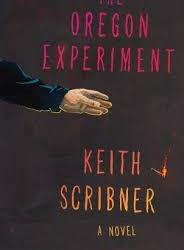

July/August 2017: Reading White Privilege
Books Bought
None
Books Borrowed
Hell or High Water: Surviving Tibet’s Tsangpo River by Peter Heller, interlibrary loan @ Driftwood Public Library, Lincoln City, Oregon
The Hidden Keys by Andre Alexis@ Multnomah Public Library
Abandon Me: Memoirs by Melissa Febos @ Multnomah Public Library
Prefabulous + Almost Off the Grid: Your Path to Building an Energy-Efficient Home by Sheri Koones @ Multnomah Public Library
Prefabulous + Sustainable: Building and Customizing an Affordable Energy-Efficient Home by Sheri Koones @ Multnomah Public Library
Modern Modular: The Prefab Houses of Resolution: 4 Architecture by Joseph Tanney and Robert Luntz @ Multnomah Public Library
Books Read
Hell or High Water: Surviving Tibet’s Tsangpo River by Peter Heller
The Oregon Experiment by Keith Scribner
Prefabulous + Almost Off the Grid: Your Path to Building an Energy-Efficient Home by Sheri Koones
Prefabulous + Sustainable: Building and Customizing an Affordable Energy-Efficient Home by Sheri Koones
Until Charlottesville, I naively believed that I lived in an America making progress with our racist history, and was merely stuck in a moment of cultural hysteresis. Hysteresis, defined as the lagging of an effect behind its cause (think of the time it takes for your fifth-in-line car to move even after the light turns green), operated so that the effect of racial progress was lagging behind the seemingly inevitable righteousness of the civil rights movement. But I was wrong, and it was through this cracked lens that I read two books that reminded me that white privilege is alive and well in every bastion of our country, and most certainly in our books.
The more obvious of the two, Hell or High Water: Surviving Tibet’s Tsangpo River by Peter Heller is an account of a bunch of (relatively) rich white people paying a bunch of poor brown people to carry their shit and cook their meals while they kayak a remote river for fun. The author does his best to make the quest look heroic:
“I passed 100 prayer flags strung on a wire over the creek with the morning sun shining through them and thought how adventurers, the truest and the finest, were the least encumbered people I’d ever known, as they had the least to protect. The rest of us acquire not just material things but also education, careers, advancement, everything entailing politics and caution. We acquire lovers, spouses, children, homes. We repeat the moves that have succeeded before, and eventually, security triumphs over risk. The seven paddlers didn’t own anything. Most of them didn’t even have a car. Most of the time, they had no steady girl to go back to. They collected nothing but stories. Maybe freedom really is nothing left to lose.” (pg 251)
The tone deaf vision presented here is dumbfounding. The author seems to forget that these seven paddlers were the truest and finest because they were able to pay people to do the work of living while they got to frolic in a river. Sadly, Heller can’t correctly identify those with nothing left to lose even when they’re right in front of him.
“We dropped down to another fire, and this time the five porters looked vulnerable and poor - and startled. They had a little bit of tsampa, jars of tea. After all that climbing and descending, this was their meal. I thought of the relative feast the Sherpas were putting together (for the paddlers) up above, and I felt ashamed.” (pg 226)
When the porters get together towards the end of the journey and mutiny, demanding higher wages for the arduous journey, I was cheering for them, not for the paddlers insistent that they had been wronged. Adventure stories need to start acknowledging their place of privilege, and understanding that freedom exists not in the egotistical drive to be first or fastest, but in the ability to choose to do so.
The more insidious of the two is The Oregon Experiment, which presents a narrative so disgustingly elitist that were Republicans ever to read books, this would be the primer on which they could declare outright class warfare. The story follows a dislikable couple as they grudgingly move from New York to Oregon. While the professor husband misrepresents his research and beliefs to fuck the local baker, his depressed wife becomes intimate with a misguided local anarchist, Clay. While presenting an intellectually lazy analysis of anarchy and youth resistance, the couple uses everyone they can to get what they want (resulting in Clay’s pointless death), and in the conclusion they even admit as much:
“She betrayed Clay to rediscover her love for her husband. She betrayed him for (her husband’s) career, and her own, to get then back east where they belonged.” (pg. 328)
So the story ends with the author wanting the reader to root for characters engaged in simultaneous adultery while also contributing to the death of a young man, all so that they can get better jobs near their hometown. It’s a tough sell particularly in the wake of Charlottesville. Sorry Scribner, but I’m not going to cheer a tale of white people destroying everyone else to get on (an arbitrary and ultimately imaginary) top. It’s 2017 and we’ve heard that story before.
#white privilege#charlottesville#books read#booklr#review of books#the oregon experiment#peter heller#keith scribner
1 note
·
View note
Photo




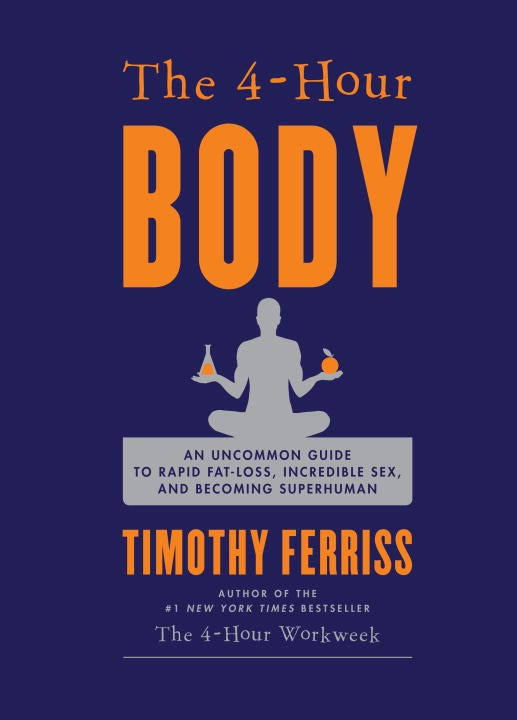

May/June 2017: Summertime Non-Fiction as Moral Disinfectant
Books Bought
Rez Life by David Treuer, bought new @ Roanoke Museum Store, National Museum of the American Indian, Washington DC
Pop-Out and Paint Farm Animals, bought new @East City Bookshop, Washington DC
Books Borrowed (all @ Multnomah County Library)
59 seconds: Think a Little, Change a Lot by Richard Wiseman
Nevertheless by Alec Baldwin
A Gentleman in Moscow by Amor Towles
Tools of Titans by Tim Ferriss
The Four Hour Body by Time Ferriss
Underground Airlines by Ben H. Winters
Every Anxious Wave by Mo Daviau
The Checklist Manifesto by Atul Gawande
Back To Moscow by Guillermo Erades
The Nature Fix by Florence Williams
Reality is Not what It Seems: The Journey to Quantum Gravity by Carlo Ravelli
Books Read
The Nature Fix by Florence Williams
Tools of Titans by Tim Ferriss
The Four Hour Body by Time Ferriss
Nevertheless by Alec Baldwin
The Checklist Manifesto by Atul Gawande
Back To Moscow by Guillermo Erades
The lion’s share of blame for my deep plunge into nonfiction can be placed on Guillermo Erades’ shallow and offensive Back To Moscow, with a fictional narrator who grows so repulsive by the end of the book I pursued self-improvement as a moral disinfectant. The easiest of the real-life lessons were presented by Tim Ferriss, who seems to be a master at breaking down things into their simplest component parts. Whether it’s the four things you need to do to lose weight (stop drinking calories for one), or the five morning rituals to start your day (journaling helps), there is an inspirational power to his reductionist presentation of all of life’s challenges.
For more thoughtful approaches to improving oneself and the world, Atul Gawande and Florence Williams provide much to consider. While seemingly simple, the concept of The Checklist Manifesto - creating checklists to reduce errors- delves into weighty ruminations about success and achievement, and provides some answers about why it’s so hard for us to do easy things that will improve our individual and collective chances.
We don’t like checklists. They can be painstaking. They’re not much fun. But I don’t think the issue here is mere laziness. There’s something deeper, more visceral going on when people walk away not only from saving more lives but from making money. It somehow feels beneath us to use a checklist, an embarrassment. It runs counter to deeply held beliefs about how the truly great among us - those we aspire to be - handle situations of high stakes and complexity. The truly great are daring. They improvise. They do not have protocols and checklists. Maybe our idea of heroism needs updating. (pg 173)
Like Ferriss, he’s able to speak smartly across disciplines. But Gawande’ is a MacArthur Fellow for good reason, as he’s operating at much higher, more altruistic level, thinking deeply about how we can improve the world collectively, and it’s a pleasure and a call to action to read his words.
While not the caliber of writer of Gawande, Williams shares fascinating research and a global perspective in The Nature Fix to show just how important nature can be for humans. Consider this when you think about schools and student achievement:
In the largest and scariest study to date looking at noise pollution and children’s cognition...researchers followed several thousand children attending elementary schools near major airports in U.K, Spain, and the Netherlands. They found significant impacts on reading comprehension, memory and hyperactivity. The results were linear, for every 5-decibel increase in noise, reading scores dropped the equivalent of a two-month delay, so that kids were almost a year behind in neighborhoods that were 20-decibels louder (results were adjusted for income and other factors). There’s something real to the phrase “you can’t hear yourself think.” (pg 91)
The book made me feel even better about my recent move to Portland (and the park right across from my house) and my early-summertime jaunts into Mount Hood National Forest (Olallie Lake is a little slice of paradise people!).
While perhaps the lightest of the readings, Alec Baldwin’s occasional bits of insight in Nevertheless were perhaps the most surprising. While clearly self-centered at heart, he comes across as both genuinely politically engaged and a lover of the craft of acting, and once in a while drops poignant gems like this one: “Alcohol drowns our dreams, silences our beliefs, and relieves us of our responsibility” (and as a result he hasn’t had a drink in over 30 years). Coupled with his charming (if overly enunciating) podcast persona, it’s hard not to enjoy stories from the Long Island boy who made good.
#alec baldwin#tim ferriss#atul gawande#florence williams#the nature fix#the checklist manifesto#books read#booklr#review of books#bibliophile
0 notes
Photo
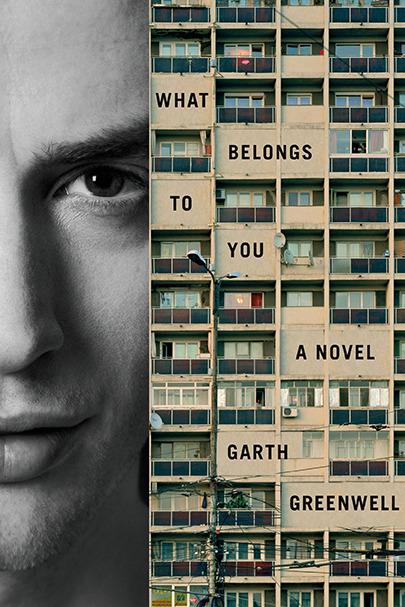


March/April 2017: "Someone for whom the examination of life still offers the promise of revelation or escape.”
Books Bought
None
Books Borrowed (all @ Multnomah County Library)
What Belongs To You by Garth Greenwell
The Abundance: Narrative Essays Old and New by Annie Dillard
You’ll Grow Out Of It by Jessi Klein
Elephant Complex: Travels in Sri Lanka by John Gimlette
Day Trips from Portland, Oregon: Getaway Ideas for the Local Traveler by Kim Cooper Fielding
Books Read
What Belongs To You by Garth Greenwell
Euphoria by Lily King
Sherman: A Soldier’s Life by Lee Kennett
What Belongs To You is certainly beautiful, with workshop-tight prose and smart provocative plotting; but reading it requires a certain amount of heavy emotional lifting. My time with the slim novel was peppered with gloomy sighs after devastating paragraphs like this one where the narrator talks to his younger sister about her difficult relationship with their father:
“There was a note of defiance in how she drank, an assertion of adulthood, but also something desperate, I thought, an escape either from or to. Her estrangement from my father was recent enough that the loss still held a kind of electric charge for her, so that at times as we spoke I thought I could see her jerk with the pang of it. All my life, she told me in those first nights we spent together, speaking with the wonder of someone for whom the examination of life still offers the promise of revelation or escape; all my life I’ve lived to please him, she said, every choice I’ve made has been his choice, it’s like nothing I’ve ever wanted has been my own.” (pg 66)
Reading What Belongs To You means taking breaks from it on the Portland Tri-Met train to stare off into the middle distance while shaking your head to marvel at what insights are achieved in so small a space. Consider this one about coming of age sexually:
“I grew up at the height of the AIDS panic, when desire and disease seemed essentially bound together, the relationship between them not something that could be managed but absolute and unchangeable, a consequence and its cause. Disease was the only story anyone ever told about men like me where I was from, and it flattened my life to a morality tale, in which I could either be chaste or condemned. Maybe that’s why, when I finally did have sex, it wasn’t so much pleasure I sought as the exhilaration of setting aside restraint, of pretending not to be afraid, a thrill of release so intense it was almost suicidal.” (pg. 122)
Rereading this passage, I’m stunned by how clever “flattened” is in a sentence about sex, and those poetic turns of phrase dot nearly every page. If you can bear the weight, Greenwell rewards you deeply.
I also took breaks while reading Sherman: A Soldier’s Life, but for entirely different reasons. This time it was to consider fate and luck and life-defining moments and the patience to wait for them. I must share that part of my fascination with the man comes from the fact that it’s well established (but dubiously sourced) family lore that I’m related to William Tecuseh Sherman, whose infamous March to the Sea in the Civil War brought about the frightful enactment of “total war,” where general destruction of military enemies and civilians was either encouraged or allowed. But the most amazing thing about the man that emerges from Kennett’s fascinating account in Sherman: A Soldier’s Life is that mere months before he was to become one of the most famous people in the country for his military exploits (and set up for life as a result), he was perilously close to financially ruin, and being unable to support his family. Sherman, as he had done so many times in his life, was living far away from his large family to work, and during this spell was having a particularly rough go of it.
“Sherman’s diary in those spring months of 1859 tells just how far the officer and banker had fallen. He laid out building lots and fixed up his one-room dwelling: most of April he worked on a barn and a corn crib; on May 3 he planted sweet potatoes and tomatoes and on the fifth “went to buy a cow.” He spend whole days hauling and plowing, days that started early: “6AM- Yoked up” ran one entry.” (pg 84)
And yet within months he was called back into service, and toward “a profound change of fortune, one such as he could never have imagined.” (pg. 97) But what if he hadn’t been called back? How many times would he have yoked up at daybreak before his finances and family imploded? And how did he speak about his life when examining it? I would imagine with the promise of escape far more than revelation. But Sherman’s life reminds us that opportunities come to us ill-timed and indirectly, and our patience and ability to withhold judgment are perhaps our most important virtues.
#william tecumseh sherman#lee kennett#garth greenwell#what belongs to you#books read#review of books#booklr#bibliophile
3 notes
·
View notes
Photo



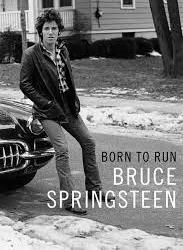
January/February 2017: “About 80% of what you believe about yourself when you’re twenty turns out to be wrong.”
Books Bought
None
Books Borrowed
The Nix by Nathan Hill @bklynlibrary
But What If We’re Wrong? by Chuck Klosterman at Multnomah County Library
Born To Run by Bruce Springsteen @bklynlibrary and Multnomah County Library
Books Read˜
The Nix by Nathan Hill
Blood, Bone, and Marrow: A Biography of Harry Crews by Ted Geltner
But What If We’re Wrong? by Chuck Klosterman
Born To Run by Bruce Springsteen
I can’t stop thinking about this bold declaration about youth offered in Nathan Hill’s The Nix, a deeply satisfying lark involving university foibles, video game addiction, and a voyeuristic Allen Ginsburg. But is it true?[1] It’s these deceptively affecting inquiries that freckle the narrative, and give the breezy plot some substantive anchors, and make it so thoughtfully fun [2] from start to 600+ page finish. And it was this thought of being wrong, and what we are learn (and don’t) from being wrong that struck me, and drove me to read Chuck Klosterman’s latest aptly named book of essays But What If We’re Wrong? Here’s the central premise:
“But what about the things we’re all wrong about? What about ideas that are so accepted and internalized that we’re not even in a position to question their fallibility? ...It’s a dissonance that creates the most unavoidable of intellectual paradoxes: when you ask smart people if they believe there are major ideas currently accepted by the culture at large that will eventually be proven false, they will say “Well of course. There must be. That phenomenon has been experienced by every generation who’s ever lived, since the dawn of human history.” Yet offer those same people a laundry list of contemporary ideas that might fit that description, and they’ll be tempted to reject them all. It is impossible to examine questions we refuse to ask.” (pgs. 2-3) [3]
With this lens, Klosterman slaloms through a bevy of nerdgasm-worthy topics: the multiverse, the simulation hypothesis, the lasting impact of rock and roll, the Deep Web, the phantom time hypothesis; and somehow he manages to tie it all together with Kafka and The Sex Pistols. Like early Geoff Dyer, he’s really good at connecting ordinary experiences to the conundrums of the human experience. Just like Bruce Springsteen.
Sadly, all I have to say about Bruce’s autobiography is this: there’s an interlude before “The River” (on his Live 1975-1985 boxed set) where he tells a story about his hair, his dad, and the Vietnam War. This four minutes provides a much better insight into the Boss than the 400+ pages of his book. A fact which is, like “the River,” heartbreaking.
Finally, Harry Crews. Holy shit. The man was a maniac, a hard-drinking, deplorably womanizing, freak down in Florida. And yet, he managed to create a canon of grimly gothic southern lit (one that I would read if I could find it). But he seemed wrong about so much (see drinking, womanizing), and his much reduced vitality in old age seemed particularly tragic. Hopefully the next generation of writers can learn something from him.
[1] At twenty I was right about social justice, soccer being the best sport, and the importance of friendship, but so painfully wrong about love (and what it can and should look like) and happiness (and the crucial difference between things that make you happy and things that are fun) that looking at a weighted ratio, I tend to agree that it is true.
[2] But it’s more than fun; I loved this book so much that when I had an important morning meeting where I was presenting to nearly 50 people, I camped out on a freezing park bench to finish what I could before going inside, and then immediately started telling people in the meeting how good the book was.
[3] If pressed on the big ideas I think we’re wrong about, I would volunteer consciousness (and what we consider living), the interconnectedness of matter (the web of life seems more literal than metaphorical to me), and american football (it’s the worst game!)
#nathan hill#the nix#chuck klosterman#but what if we're wrong#bruce springsteen#born to run#harry crews#books read#review of books#book recommendations
4 notes
·
View notes
Photo

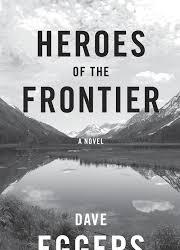

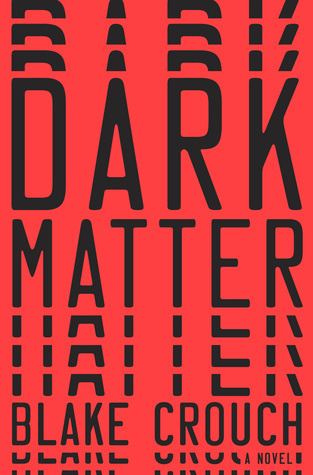

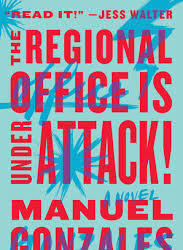

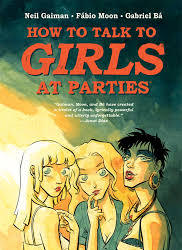

November/December 2016: How Time Works on a Person
Books Bought
None
Books Borrowed
Medicine Walk by Richard Wagamese @bklynlibrary
Fun House: A Family Tragicomic by Alison Bechdel @bklynlibrary
Playing the Fool by Roly Bain @bklynlibrary
Moxyland by Lauren Beukes @bklynlibrary
The Invoice by Jonas Karlsson @bklynlibrary
How To Talk To Girls At Parties by Neil Gaiman, Fábio Moon and Gabriel Bá @bklynlibrary
Train Dreams by Denis Johnson @bklynlibrary
Heroes OF The Frontier by Dave Eggers @bklynlibrary
The Baltimore Atrocities by John Dermot Woods @bklynlibrary
War & Turpentine by Stefan Hertmans @bklynlibrary
Dark Matter by Blake Crouch @bklynlibrary
The Regional Office is Under Attack by Manuel Gonzalez @bklynlibrary
Books Read˜
Medicine Walk by Richard Wagamese
Heroes of The Frontier by Dave Eggers
Dark Matter by Blake Crouch
Fun House: A Family Tragicomic by Alison Bechdel
Playing the Fool by Roly Bain
The Invoice by Jonas Karlsson
Where'd You Go Bernadette by Maria Semple
How To Talk To Girls At Parties by Neil Gaiman, Fábio Moon and Gabriel Bá
(at least half of) The Regional Office is Under Attack by Manuel Gonzalez
As an educator, November 8, 2016 was the worst day of my life (as it showed my nation as one uninterested in logic, reasoning, and facts), and not surprisingly my retreat into books was swift and total. Of all of them, Richard Wagamese’s Medicine Walk was the standout. It’s a sparse, haunting book of a son traveling by horseback with his dying father. The prose, particularly in descriptions of the natural world, is simple and strong, while the story of the father sharing with his son how he came to be the man he is, is grim and tragic. Near the end, the son mulls over what he’s learned:
He thought about everything he’d been told. It was grim but more than he had before...He wondered how time worked on a person. He wondered how he would look years on and what effect this history would have on him. He’d expected that it might have filled him but all he felt was emptiness and a fear that there would be nothing that could fill that void. His thoughts turned toward (his father) and there was only pity there for a life with benchmarks that only ever set out the boundaries of pain and loss, woe and regret, nothing to bring him comfort in his last days. He thought of his lost mother, and wondered how it might have felt to touch her, to put a hand or the other on her shoulder and claim some of her energy as his own, or if, as an infant, enough of her spirit had clung to him despite all the lean years of absence to carry him forward without loneliness. He hoped so. His life was built on the stories of vague ghosts. He wanted desperately to see them fleshed out and vital. History, he supposed, lacked that power. He rubbed his palms together slowly then held them out to the fire. (pg. 232)
Wagamese, a prolific Canadian writer deserves more of an audience with goods this polished.
As for Dave Egger’s latest, Heroes of the Frontier, it’s funny when describing the peaks and valleys of middle age mundanity. Here is just a snippet of a multi-page tour de force describing the main character’s normal day:
Now at 40, Josie was tired. She was tired of her journey through a day, the limitless moods contained in any stretch of hours. There was the horror of morning, underslept, feeling like she was on the precipice of something that felt like mono, the day already galloping away from her, her chasing on foot, carrying her boots. Then the brief upward respite after a second cup of coffee, when all seemed possible, when she wanted to call her father, her mother, reconcile...Then, after the kids were gone, an eleven-minute mood freefall, then more coffee, and more euphoria until the moment, arriving at her practice, when the coffee had worn off and she grew, for an hour or so, more or less numb, doing her work in a state of underwater detachment. (pg. 21-22)
The neatly wrapped conclusion (where clarity comes from just a few weeks in nature) feels unearned. But it’s a page-turner at heart, telling a small story, most certainly not worried about the world at large. Which is of course why I read it, and enjoyed it. The question becomes how long can we go on like this?
#richard wagamese#dave eggers#alison bechdel#roly bain#jonas karlsson#maria semple#neil gaiman#books read#review of books#book recommendations
6 notes
·
View notes
Photo


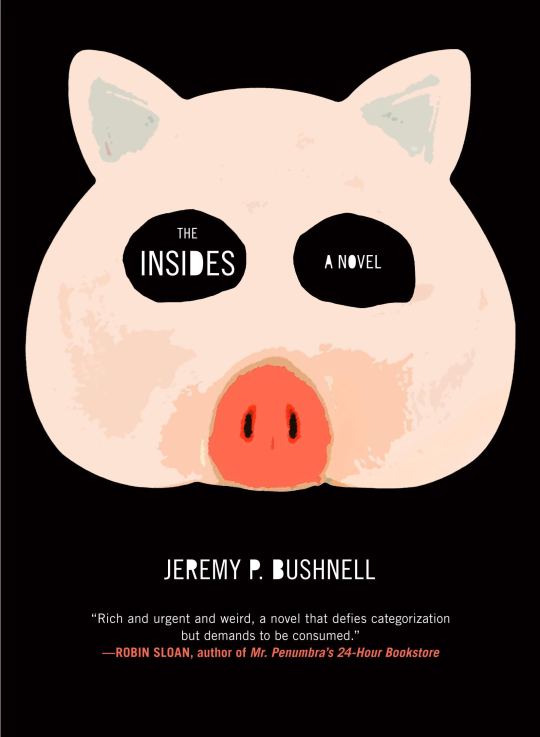
September/October 2016: More Stevie Nicks Drag Queens, Less Terrible Things
Books Bought
The Maytrees by Annie Dilliard, bought new @ Parnassas Book Service, Yarmouthport, MA
Books Borrowed
The Dead Beat by Marilyn Johnson @ BPL
Porcelain by Moby @ BPL
Spanish Lessons: Beginning a New Life in Spain by Derek Lambert @ BPL
A Little Life by Hanya Yanagihara @ BPL
Bushido: The Soul of the Samurai adapted by Sean Michael Wilson @ BPL
The Insides by Jeremy P. Bushnell @ BPL
On Trails: An Exploration by Robert Moor @ BPL
Books Read˜
Porcelain by Moby
A Little Life by Hanya Yanagihara
The Insides by Jeremy P. Bushnell
Despite the momentous critical fanfare, A Little Life by Hanya Yanagihara is a consistently and profoundly disappointing novel, with numerous faults ranging from the vexing to the infuriating. To summarize the 700+ pages, four young men, including the main character who has been horrifically abused as a child, go to a prestigious college, become friends, and their lives intertwine for a few decades. Of the weaknesses, critic Daniel Mendelsohn diagnoses a central one, that “the preposterous excess of humiliation and suffering heaped on the protagonist by its author... both defies verisimilitude and alienates the sensible reader.” It is on this point that other critics have bizarrely found beauty, but it’s where the battle lines of criticism have so far been drawn. Rather than wrangle a few more points out of that debate, I’d like to shift the theater of operations to a weightier critique of what the author explicitly identifies as a primary focus of the book: exploring male friendship.
“Why wasn’t friendship as good as a relationship?” one of the main characters asks early on in the book. It’s this question the author wants to explore, her curiosity piqued by her appraisal (shared in interviews) that across race, creed, and religion, men have a more limited vocabulary than women to discuss difficult emotional issues. Given the protagonist’s abundance of horrors that beg to be shared, it’s an intriguing question to ask: how can our foursome use friendship to provide some form of solace for the barbarity of the world?
Unfortunately, there is a fundamental problem with the set up: these people are not friends. To summarize how the quartet interacts, here are some axioms about friendship that exist, particularly for our wounded protagonist:
1. Friends never ask questions about things you don’t want to talk about.
2. Friends do anything and everything for you, and you do nothing for them.
3. Friends never do anything you don’t like (and in the single instance of your adult life that they do, you can stop being friends with them).
4. Friends let you hurt yourself.
5. Friends make no demands of you.
6. Friends never abandon you, even if you abandon them.
7. These truths about friendship never change.
As appealing or appalling as these descriptions may be, they aren’t of friendship. While there are interesting omissions and taboos between men in their friendships, there is something there. Instead what we’re presented with here is nothing more than a vapid, eternal, and wholly unearned loyalty. And without real relationships grounding the narrative, the book simply becomes a shallow reflection on how terrible the world can be.
After such a bruising read, I hoped for something healing, and Moby’s Porcelain was just that. His poverty-stricken childhood and modest music ambitions make for a winning tale of unlikely professional DJ success, and when he starts drinking after an 8-year prohibition, the stories are delightfully degenerate (the one about public nightclub sex surrounded by dozens of drag queens dressed like Stevie Nicks is priceless) and provide just the right vicarious thrill. His Christianity and veganism and DIY-ethos paint a full picture of a person (more than Yanagihara ever manages to do) struggling to make sense of the hardscrabble NYC of the 1980s and 90s. Moby Go!
#a little life#hanya yanigahara#moby#books read#Brooklyn Public Library#books bought#books borrowed#booklr#review of books
3 notes
·
View notes
Photo
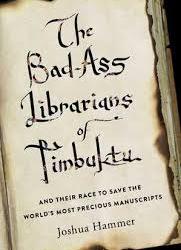
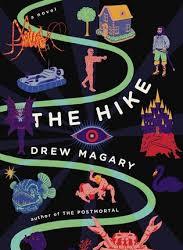

July/August 2016: “What drove him most was a belief in the power of the written word.” (pg. 117, BALOT)
Books Bought
None
Books Borrowed
Mating by Norman Rush @ Brooklyn Public Library
The Beautiful Bureaucrat by Helen Phillips @ New York Public Library
The Hike by Drew Magary @ Brooklyn Public Library
The Bad-Ass Librarians of Timbuktu: And Their Race to Save the World’s Most Precious Manuscripts by Joshua Hammer @ Brooklyn Public Library
Books Read˜
The Bad-Ass Librarians of Timbuktu: And Their Race to Save the World’s Most Precious Manuscripts by Joshua Hammer
The Hike by Drew Magary
The Beautiful Bureaucrat by Helen Phillips
Book lovers will cherish Abdel Kader Haidara, the hero of The Bad-Ass Librarians of Timbuktu (which is a decidedly bad-ass title), who somehow manages to save 377,00 priceless manuscripts from the rampages of Al Qaeda in an astounding real-life tall tale. The historic Islamic manuscripts detail religious thought on topics not currently accepted in fundamentalism orthodoxy: logic, astrology, medicine, romantic love. And while the story is both amazing and inspiring, Hammer’s story is a history lesson more than anything else, one that exposes the interwoven complexity of ethnic, tribal, and religious affiliations in Mali and surrounding Africa that gives context to the rise of ISIS and the profound challenges of intervention that Western powers are so quick to provide. Consider these conditions:
“ We have to seize this valley in one week or ten ten days, or the battle is lost.”..The stakes were significant: a French withdrawal without a decisive defeat of jihadis would give AL Qaeda in the Islamic Maghreb an enormous propaganda victory, potentially drawing thousands more recruits to the cause, and throwing Mali into deeper chaos. For Abdel Kader Haidara, who was following the looming battle in the north as best he could from his Bamako sanctuary, the crushing of the extremists was essential. Only then, he knew, could he finish his monumental task, and return the 377,000 manuscripts to their desert home.” (pg. 219)
I wish everyone in the world, and particularly global military leaders, would read this to see how profound the challenges moving forward will actually be, especially if we continue with the historical Western model of blunt, hegemonic domination.
The other two books I read, both escapist fiction, were perfect for the dog days of summer, but even with that wide latitude they had serious faults. The Hike is terribly written with an entertaining plot and satisfying conclusion, while The Beautiful Bureaucrat (a decidedly not bad-ass title) is gorgeously written with a serviceable plot and disappointing conclusion. It’s hard to recommend either, but Phillips, who created a starkly eerie and unexpected world, will be someone to watch.
#books read#books bought#books borrowed#joshua hammer#bad-ass librarians of timbuktu#the hike#drew margary#the beautiful bureacrat#helen phillips#bklynlibrary#nypubliclibrary#booklr
1 note
·
View note
Photo

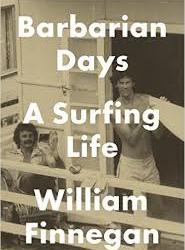



May/June 2016: White Men Write about Travel and Escape (1)
Books Bought
On Michael Jackson by Margo Jefferson, bought used @ Amherst Books, Amherst, MA
Books Borrowed
The Point of Vanishing: A Memoir of Two Years in Solitude by Howard Axelrod @ Brooklyn Public Library
The Wonder Trail: True Stories from Los Angles to the End of the World by Steve Hely @ New York Public Library
White Sands by Geoff Dyer @ Brooklyn Public Library
The Search by Geoff Dyer @ Brooklyn Public Library
Mislaid by Nell Zink @ Brooklyn Public Library
Barbarian Days: A Surfing Life by William Finnegan @ New York Public Library
Books Read˜
The Point of Vanishing: A Memoir of Two Years in Solitude by Howard Axelrod
Barbarian Days: A Surfing Life by William Finnegan
The Wonder Trail: True Stories from Los Angles to the End of the World by Steve Hely
White Sands by Geoff Dyer
The Search by Geoff Dyer
In my second year of marriage and my first of fatherhood, between work responsibilities taking on a certain Faustian weight and endless parenting duties bleeding into the dreams of what little sleep I get, the themes of travel and escape beat strongly at the heart of the books I read. And still I was shocked that Howard Axelrod’s memoir chronicling the hard won benefits of solitude should affect me so deeply. But it did, with subtle paragraphs like this, where he describes sitting up after lying down in the snow:
Eventually, when I sat up, the hills and distant mountains looked different. The land felt oceanic, unimpeded in all directions. The frosted trees on the hills seemed to continue forever, well beyond what the eye could see, and the bluish snow-capped mountains looked both very close and very far. The ease in the land’s movement, the way no part of it seemed divided from any other, accorded with the way I felt- with the way I saw. There was an organization to the land but with a wide margin, with no precise division of space, with no need of my hand or foot to turn any line solid. I felt at home, in a habitat that fit with my senses, as though some membrane had been dissolved. I was back in the world rather than outside it. And seeing this way felt like a kind of cleansing, an absolution, as though the land itself had opened to take me in. (pg. 59)
Axelrod’s familiar human quest for isolation in order to find a bottom on which to stand is, like his writing, all the things it should be: bravely self-centered, indulgent in it’s simplicity, and bracingly honest. He captures a mystical weight in the ordinary, and of all the authors seems the boldest for staying in one place in order to go exploring.
William Finnegan takes the opposite approach in Barbarian Days: A Surfing Life: to cover the globe in pursuit of a great wave. The book does well in chronicling the great lengths to which the pursuit has driven him, and one can understand the mania when he describes his experience on a wave.
The key to surfing Kirra was entering the wild section at full speed, surfing close to the face -pulling in- and then, if you got inside, staying calm in the barrel, having faith that it just might spit you out. It usually didn’t, but I had waves that teased me two, even three times, with the daylight hole speeding ahead, outrunning me, and then pausing and miraculously rewinding back toward me, the spilling lip seemingly twisting like the iris of a camera lens opening until I was almost out of the hole, and then reversing and doing it again, receding in beautiful hopelessness and returning in even more beautiful hope. These were the longest tube rides of my life. (pg 223)
Yet for all the grandeur of the surfing, Finnegan is plagued by guilt about his circumstances. “Being rich white Americans in dirt poor places where many people, especially the young, yearned openly for the life, the comforts, the very opportunities that we, at least for the seemingly endless moment, had turned our backs on - well, it would simply never be okay.” (pg 176) And while it remains in the background, his transition into an acclaimed international journalist focused on some of the most dangerous and depraved events of the time, becomes a sincere answer to the difficult questions he has about his responsibilities in this life.
A world apart from Axelrod’s challenging personal investigation and Finnegan’s sprawling surf history is Steve Hely’s The Wonder Trail, a snapshot of narcotic fueled abandon tinged with literary and historical footnotes that perfectly, and somewhat frighteningly, captures a reality of contemporary travel for certain well-off Westerners. More than anything Hely seems to be trying out to be the next, younger, rowdier Bill Bryson. And while he is still a ways off (more narrative focus and some characters imbued with a third dimension are needed), the enterprise is still fun, showing us that taking ayahuasca in the jungle, snorting cocaine in Columbia, and partying with Australians anywhere can be a riot.
(1) It wasn’t until I finished typing out my Books Read list that I noticed that I had read five books by white men about travel. And while I’m temped to to write about the embarrassment of mindlessly selecting a reading list that reflects a staggering amount of socio-cultural privilege, I can’t imagine it beyond the title Do People of Color Get to Write About Travel and Loneliness? and the answer, no.
#white sands#Geoff Dyer#Brooklyn Public Library#the point of vanishing#howard axelrod#the search#nypl#bklynlibrary#steve hely#the wonder trail#william finnegan#barbarian days#books read#books#book review
0 notes
Photo
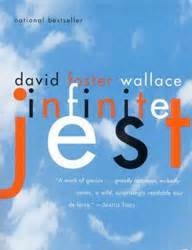
March/April 2016: Wrestling with David Foster Wallace
Books Bought
None
Books Borrowed
None
Books Read˜
Infinite Jest by David Foster Wallace (in progress)
In an admittedly vain attempt to transition from one of those feckless people with Infinite Jest sitting on their shelves unread into an audacious someone who has confidently read the magnum doorstop, I (re)started reading David Foster Wallace’s opus (1). After two months, I am on page 601 (2). And yes the much adored book is entirely virtuosic with stunning set pieces scattered around noble ruminations of pleasure and its’ debasing influence. But it’s also agonizing in detail and frustrating in its’ cleverness, making the process of reading it into one of manic seesawing, slamming abruptly from gorgeous triumph to cheerless and boring desperation.
My biggest critique is about the way everyone talks. Here’s a 13 year old at a tennis academy: “The purpose for which I was upon the stairs and became disoriented was to visit a lavatory. This was long ago. (3)” And here’s a middle age addict in recovery, complaining, in a halfway house not far away: “Now I live by the dictates of macramé samplers ordered from the back-page ad of an old Reader’s Digest or Saturday Evening Post. Easy does it. Remember to remember. But for the grace of capital-g God. Turn it over. Terse, hard-boiled. Monosyllabic. (4)” Combined with the verbiage that goes into the page-to-page descriptions (”...Francis Gehaney, one of the most ancient of Crocodiles, had a white crew cut and skallycap and suspenders over the flannel shirt that encased his gut, and an enormous cucumber-shaped red schnoz you could actually see whole arteries in the skin of, and brown stumpy teeth, and emphysema and a portable little oxygen-tank thing whose blue tube was held under the schnoz with white tape, and the very clear bright eye whites that went along with the extremely low resting pulse-rate of a guy with geologic amounts of sober AA time. (5), almost everyone sounds like each other, or rather they sound like the (very smart) author. And this leads to an overly analytical appreciation of the characters and the book, because the emotional connection to distinct, real-feeling people isn’t quite there. Or to put it another way, I’m enjoying many things about the book in my head, but very few in my heart. (6)
And my second critique is about the length. C’mon man, I got a kid and a job and a dissertation to finish. Let’s get to the guts cause you’re killing me with the glacially-slow burn. Vamos!
(1) I believe this is attempt number four. The first three never reached pages in the triple digits.
(2) Technically I’ve read many more pages, because while the text clocks in at 981 pages, there are 198 pages of footnotes. So I’ve actually read 667 pages.
(3) pg. 572, Idris Arslanian, blindfolded, talking to Pemulis
(4) pg. 271, annoying Geoffrey Day, just days into his sobriety
(5) pg. 468, Crocodiles, the term for old guys at AA that have been sober for years
(6) Which makes me think about the time I pulled out my book with a woman friend of mine, to which she exclaimed “I don’t think a single woman has ever read that book.”
2 notes
·
View notes
Photo


January/February 2016: Doing The Thing I’ve Always Said I’d Do
Books Bought
None
Books Borrowed
Clean by Alejandro Junger, M.D, with Amely Greeven @ BPL
Books Read˜
On Chesil Beach by Ian McEwan
Clean by Alejandro Junger, M.D, with Amely Greeven
I’m finally reading Infinite Jest by David Foster Wallace. It’s been on my bookshelf for close to 20 years where I’ve picked it up a half dozen times and replaced it after 60 or 80 pages, each time a touch lost and fatigued and happy to let the grand mystery of the tome lie in wait for another time. But no longer.
However, this heartening process was interrupted by a much-needed jaunt to Puerto Rico (for which I crash-cleansed using the fair-seeming insights of Clean), where I found Ian McEwan’s book in the pile of brightly colored thrillers and chit lit that every vacation house has squirreled away. I can say that if you’ve ever wanted to understand the tragic consequences of the repression and stiff-upper-lip-ness that is uniquely English, then On Chesil Beach is essential reading. It’s impossible not to feel for the characters as their love spirals out of reach, but it’s also impossible not to feel that the reasons for it doing so are terribly out-of-touch (especially for an American reader), with their overbearing societal pressures little more than an anachronism. As the years pile on in the brief conclusion, one wonders if the man and woman couldn’t have just picked up the phone to address exactly what happened On Chesil Beach. It seems they could clear it all up over a cup of coffee.
Speaking of which, I need another cup: I’m only on page 373. Let’s do this Wallace.
0 notes
Photo
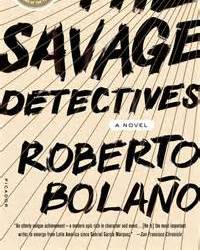

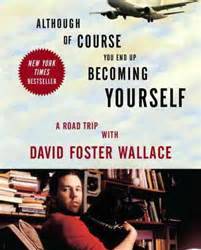

November/December 2015: What We Ask About When We Ask About Books
Books Bought
None
Books Borrowed
The Casualties by Nick Holdstock @ BPL
Hammer Head: The Making of a Carpenter by Nina MacLaughlin @ BPL
Bull Mountain by Brian Panowich @ BPL
Satin Island by Tom McCarthy @ BPL
The Art of Fielding by Chad Harbach @ BPL
The Savage Detectives by Roberto Bolaño @ BPL
Although of Course You End Up Becoming Yourself: A Road Trip with David Foster Wallace by David Lipsky @ BPL
Books Read˜
The Savage Detectives by Roberto Bolaño
The Art of Fielding by Chad Harbach
Although of Course You End Up Becoming Yourself: A Road Trip with David Foster Wallace by David Lipsky
Hammer Head: The Making of a Carpenter by Nina MacLaughlin
The first question we ask each other about books is simply “is it good?” In trying to answer that question about both The Savage Detectives and The Art of Fielding considering the very different experiences they provide, I reflected on this quote from David Foster Wallace as he riffs on books and TV and, as always, what really makes us happy (and not) in Although Of Course You End Up Becoming Yourself:
...I mean art requires you to work. And we’re not equipped to work all the time. And there’s time when, for instance for me, commercial fiction or television is perfectly appropriate. Given the resources I’ve got and what I want to spend. The problem is, when I’m trying to derive all my spiritual and emotional and artistic calories from that stuff, it’s like living on a diet of candy.
As I slogged through The Savage Detectives it occurred to me that the experience of reading I was having was one of hard work. The second of the three sections is exhausting, nearly 500-pages filled with dozens of chapters from dozens of different characters points of view. Here are a few lines from one where the narrator Amadeo is talking to our boys, the two rather elusive protagonists:
And they: salud, Amadeo. And I: salud. And they: viva Flores Magón, Amadeo. And I: viva, feeling a sharp pain in my stomach as I thought about the old days and how late it was, that time when night sinks into night, though never all of a sudden, the white-footed Mexico City night, a night that endlessly announces her arrival, I’m coming, I’m coming, but it is a long time coming, as if she too, the devil, had stayed behind to watch the sunset, the incomparable sunsets of Mexico, the peacock sunsets, as Casárea would say when Cesárea lived here and was our friend. (pg. 312)
There is a tender, lyrical flow to the writing, but that flow is interrupted by countless names of poets and politicians and city streets and It takes work for the reader to map the world that Roberto Bolaño is creating (here is a much more thoughtful account of the book and its’ challenges). Yet the book had me considering and reconsidering poetry and art and writing and love and partnership and machismo and the things I would die for and how time changes our understanding of all those things.
The Art of Fielding provides an entirely different experience, as I effortlessly floated through the 500+ pages. The writing is charming but surgically precise: there is not a wasted word or extraneous detail to be found. Here is a description of the main character, Henry, a shortstop, practicing grounders after a game:
After each ball, he dropped back into his feline crouch, the fingertips of his small glove scraping the cooked earth. He barehanded a slow roller and fired to first on a dead run. He leaped high to snag a tailing line drive. Sweat poured down his cheeks as he sliced through the soup-thick air. Even at full speed his face looked bland, almost bored, like that of a virtuoso practicing scales. (pg. 5)
And while there is most certainly a beautiful, intriguing story, the precision verges on the antiseptic, where the author Chad Harbach is the bored virtuoso. To put it another way, it feels like the story was neatly charted out on graph paper. While there are surprises, there isn’t any messy ambiguity for the reader; there’s no question that you’re rooting for each and every one of these characters. And so when it ends, neatly, there isn’t much to savor, to consider or reconsider.
This is all to say that instead of the simplistic “is it good?” perhaps we can begin to ask each other “what is that book good for?” Then we can answer it is for serious contemplation of poetry and artistry and tracing a host of imperfect (non-American) lives across the globe, as it is The Savage Detectives. And we can answer that it is for enjoying a gorgeous romp through a well-kept (very American) college town with precision in baseball as its’ central metaphor, as it is in The Art of Fielding. And we can answer that it is for a lively and heartfelt account of the benefits and challenges in changing direction from the cerebral to the manual in one’s work, as it is in Hammerhead: The Making of a Carpenter. I will argue that once we change what we ask when we ask about books, we will have a lot more to say.
#the savage detectives#roberto bolaño#the art of fielding#chad harbach#david foster wallace#david lipsky#although of course you end up becoming yourself#books#books read#literature#biblioklept#hammerhead#nina maclaughlin#carpentrix#literary criticism
0 notes
Photo







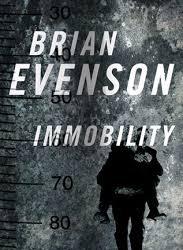
September/October 2015: Endings are Hard
Books Bought
Out of Sheer Rage by Geoff Dyer, used @ Unnameable Books, Brooklyn
Patient: The True Story of a Rare Illness by Ben Watt, used @ Unnameable Books, Brooklyn
Books Borrowed
Gonzo Girl by Cheryl Della Pietra @ BPL
Immobility by Brian Evenson @ BPL
This Is How It Really Sounds by Stuart Archer Cohen @ BPL
The Rise and Fall of Great Powers by Tom Rachman @ BPL
The Strange Library by Haruki Murakami @ BPL
I Can Give You Anything but Love by Gary Indiana @ BPL
The Sunshine Crust Baking Factory by Stacy Wakefield @ BPL
The Rise and Fall of Great Powers by Tom Rachman @ BPL
Dear Committee Members by Julie Schumacher @ BPL
To Rise Again At A Decent Hour by Joshua Ferris @ BPL
Books Read
The Rise and Fall of Great Powers by Tom Rachman
Dear Committee Members by Julie Schumacher
This Is How It Really Sounds by Stuart Archer Cohen
The Strange Library by Haruki Murakami
To Rise Again At A Decent Hour by Joshua Ferris
Gonzo Girl by Cheryl Della Pietra
The Sunshine Crust Baking Factory by Stacy Wakefield
Immobility by Brian Evenson
Just out of college in the fall of 1999, I worked as an assistant for a very fat and ethically-challenged food writer making $328 a week. In addition to overeating free meals and writing drafts of the column, the role included driving his whale of a Lincoln Towncar through Manhattan, where I often sat double parked for long stretches, waiting for a meeting to end. The Battle for Los Angeles by Rage Against the Machine had just come out and “Guerrilla Radio” was on heavy radio rotation. I loved Rage (and still do): their activism was fearless and clever, Zach de la Rocha’s lyrics were pointed sermons punctuated with a righteous snarl, and Tom Morello’s guitar work never got the credit, for being both wailing and inventive, that it deserved. In that stuffy Towncar I would roll up the windows, bang my palms against the steering wheel and scream out the lyrics that became a kind of firebrand mantra: “It has to start somewhere/It has to start sometime/What better place than here/What better time than now?”
Yet within a year (in which Limp Bizkit disgustingly beat out Rage for a MTV award), Rage Against the Machine had disbanded. De la Rocha disappeared and the remaining members formed Audioslave with Chris Cornell, an enormous step down in any assessment of bad-ass-dom. To this day, I find this ending wholly unacceptable: one of the best, loudest, and angriest bands of the era simply faded away, with a narrative of little more than “our decision making process has completely failed.”
I say this to showcase a hopefully analogous truth about the books I just read: endings are hard. While we are impossibly lucky to live in a time where there are thousands that can compose a clear sentence about an interesting character involved in an intriguing plot, the ability to conclude a narrative in ways that are simultaneously logical and satisfying is much rarer. Most often it seems appropriate to say that the author’s decision making process has failed: the direction and speed falter, or the twist is too far-fetched, or the protagonist’s change is cheap and unearned.
In this batch, just two authors made all the right decisions: Tom Rachman, gaining power as a writer exponentially, and an unknown to me, Julie Schumacher. On just his second outing, Tom Rachman has proven his other-wordly skill again: The Rise and Fall of Great Powers is impressive in its ability to consistently engage and end with a genuine sense of awe (and still I might like his first novel The Imperfectionsists more). The story of Tooly Zylberberg is both surprising and moving (even if it could have been shaved by a page here or there), and I find myself still considering her hard-earned journey in the midst of even-engaging tasks at work weeks later.
Julie Schumacher’s most prominent skills in Dear Committee Members are quite different than Rachman’s: she is clever and funny. In lesser hands the premise of a novel written in recommendation letters would surely grow stale, but Schumacher masterfully executes brevity and wit, and somehow manages to rise above the hijinks with a graceful and stirring denouement.
And to prove my original premise specifically in regards to this column, I will share that I just found out that my food writer boss died a few years ago, attended to by what I thought was his business partner, but was in fact his longtime companion. It appears I was quite naive at the turn of the century.
#books read#the rise and fall of great powers#tom rachman#dear committee members#julie schumacher#rage against the machine#bklynlibrary
1 note
·
View note